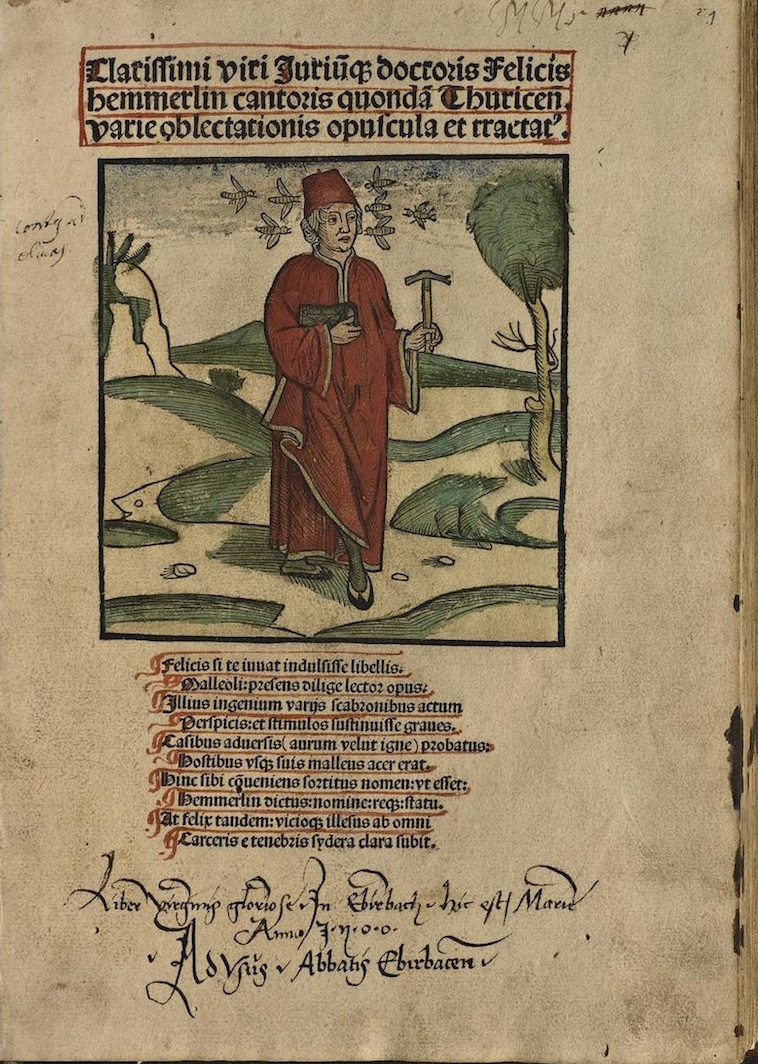The Combative Scholar: Felix Hemmerli

First page from Clarissimi viri Iuriumque doctoris Felicis Hemmerlin cantoris ... varie oblectationis opuscula et tractatus, Strassburg, ca. 1497; digitized online ULB Darmstadt: http://tudigit.ulb.tu-darmstadt.de/show/inc-iv-5/0001).
Felix Hemmerli (also known as Hemmerlin, Hämmerlein, Malleous, and the like) born 1388-89 in Zurich, was a significant scholar in his time. After studying law in Erfurt and Bologna, he returned to his hometown and worked in various positions in the church, among other things, as the Cantor at the Grossmünster (the church in Zürich). He participated in the Council of Basel and afterwards began to publish numerous texts. His work ranges from ecclesiastical or legal opinions, to personally colored criticisms of the church and morality in general, to a detailed account of the nobility and the legality of their power (De Nobilitate et Rusticitate Dialogus). Due to his stance against the Eidgenossenschaft (Old Swiss Confederacy), he had many enemies: in 1454 he was suprivingly arrested, removed from his position as Cantor at the Grossmünster, and sentenced to life in prison by the Franciscans in Lucerne, which is where he spent the rest of his life. He continued to write texts, including among other things, a detailed lamentation of the injustice that was inflicted upon him (Registrum Querele) – until he died in 1458.
The topic of this exercise is Hemmerli’s hand-written introduction to texts of his profoundly adored predecessor, Konrad von Mure, in the manuscript ZB Ms Car C 56.
